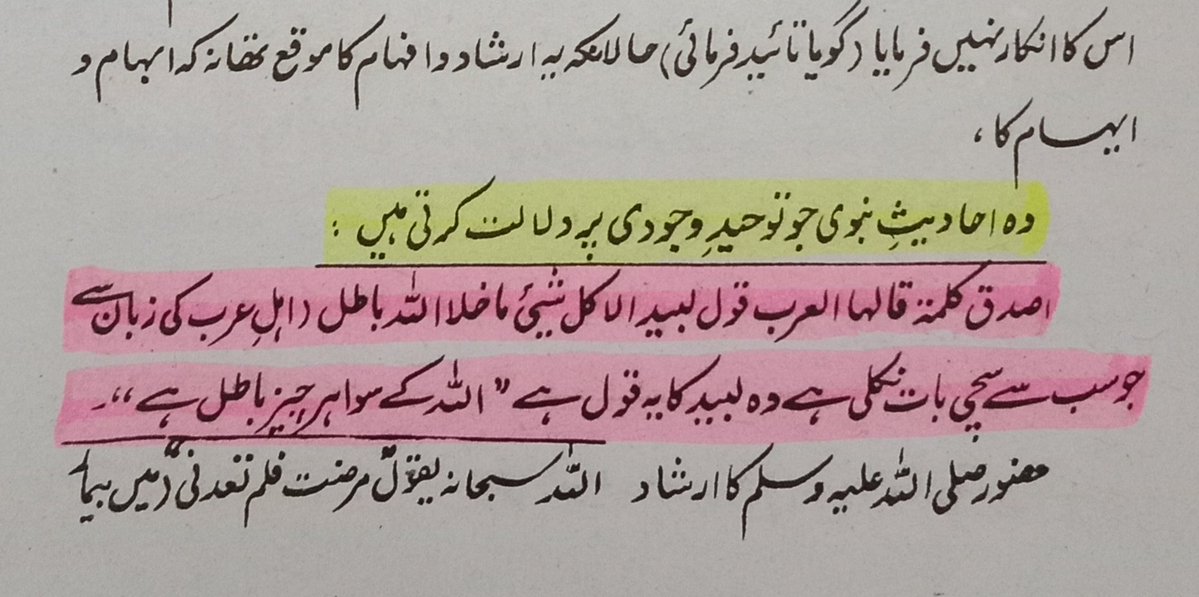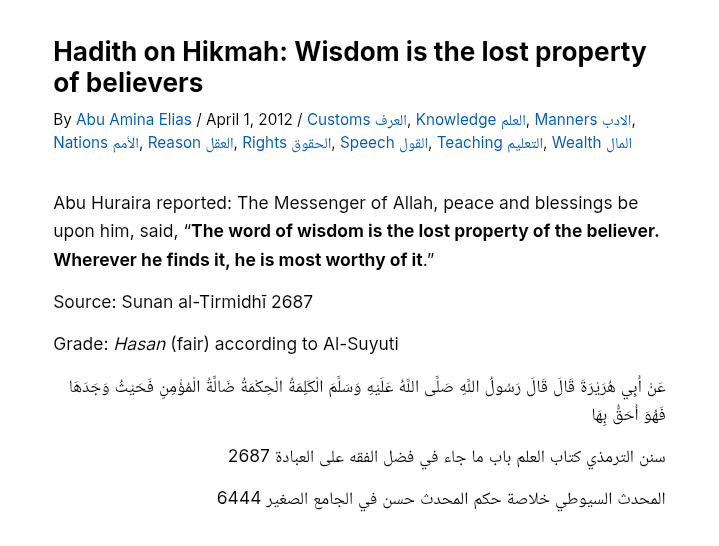A lesser known but powerful Prophetic hadith that serves as a proof for tāwhid-i-wujūdi/ mono-realism, when it is taken in its literal meaning.
The hadith shows how firmly rooted tāwhid-i-wujūdi was in the language and consciousness of classical Arabs, a point against those
🧵
The hadith shows how firmly rooted tāwhid-i-wujūdi was in the language and consciousness of classical Arabs, a point against those
🧵

who object that it was not preached and believed in by the Prophet ﷺ and sahāba.
The hadith is quoted by Shaykh Ayn al-Qudat ق in his Zubdat al-Haqā’iq as you can see in the first part of this thread, and by Allāma Fazl Haq-i-Khairābādi ق in his al-Rāwd al-Mūjud, for the same purpose as I just described. 

— The Essence of Reality (trans. Mohammad Rustom), (Arabic) p. 72, (English) p. 73.
— al-Rāwd al-Mūjud..., (Urdu) p. 67, (Arabic) p. 36.
— al-Rāwd al-Mūjud..., (Urdu) p. 67, (Arabic) p. 36.
• • •
Missing some Tweet in this thread? You can try to
force a refresh













